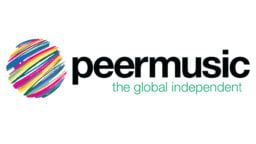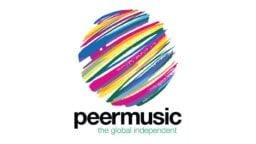Who’d be an independent publisher in 2016?
The number of threats hitting these businesses seems to grow by the day.
Obviously, there’s streaming revenue. Whether it’s on-demand services like Spotify or ‘lean-back’ stations like Pandora/Sirius, publisher income famously pales into comparison to that received by record labels.
The suspicion is that, with greater profit margins on the recordings side, the world’s three biggest music companies (Universal, Sony and Warner) are happy for the vast majority of streaming revenue to be attributable to masters.
It’s a situation which will only get harder to fight as Sony Corp takes full control of Sony/ATV.
Talking of Sony… One of the biggest decisions in recent US publishing history is due next year, when the Copyright Royalty Board effectively sets the new streaming payout rate for publishers and songwriters in the market.
Sony Music, the record company, is currently lobbying for a result that – while confidential – has the National Music Publishers Association hopping mad.
NMPA boss David Israelite has even accused Sony of “fighting on the side of digital music companies to try to further reduce what little income [songwriters] receive from on-demand streaming”.
Another threat for many indie pubs are the young, hungry players in their world; the likes of BMG and Kobalt, fast-munching market share through both acquisition and extremely competitive splits with writers.
And as if all that wasn’t tough enough, the US Department of Justice has just made the concept of 100% licensing, dubbed a disaster by most in the music business, fully mandatory across the US.
So… who’d be an independent publisher in 2016?
Well, peermusic, for one.
Despite the smorgasbord of challenges in its way, peer is feeling optimistic about the future.
It’s certainly a significant player, with more than 350,000 copyrights under its control – including classics from You Are My Sunshine to Georgia On My Mind as well as contemporary hits such as Beyonce’s Single Ladies and Justin Bieber’s No Pressure.
The 85-year-old business has been family-run since its inception, and today is no different.
Ralph Peer II, the son of Ralph and Monique Peer, is the business’s Chairman and CEO. His daughter, Mary Megan Peer, was last week promoted to Deputy CEO having been largely responsible for peer’s recent global expansion.
Peer now has its own offices in 28 territories including China, Brazil, Germany, South Africa, Japan, Sweden, Australia, the UK and the US – and prides itself on its global network.
“There isn’t a region in the world where we aren’t an active player,” Mary Megan tells MBW, adding that Peer is particularly proud of its “world class” copyright and royalty technology.
MBW caught up with both Ralph and Mary Megan to ask how they’re facing down threats and making the most of global opportunities.
In short: with calmness, pragmatism and more than a little grit.
“We’ve been around over 85 years,” explains Mary Megan. “It’s not as if this is the first time there’s been uncertainty in the market…”
As an independent publisher, is it getting easier or harder to compete in the global marketplace?
Mary Megan: There’s always been competition out there and will always continue to be. In many ways it’s nice to see well-funded independent publishers come into the market, but it pushes deal prices up.
We can offer a much more customized, boutique level of personal attention than you’d get at the majors, but at the same time we have the same international reach as they do. As a writer with peermusic, you’re not being farmed out to a number of sub-publishers around the world.
Ralph: The independent publisher has a special place for certain composers and publishers looking for representation. Given our size, we’re able to focus on each deal we do.
On the other hand, we have a reach – we’re geographically dispersed so we have complete control over the rights that come in. That’s a unique position for working with an independent publisher and the advantages it can bring. We’re both international and independent.

Mary Megan: BMG and others have certainly forced us to sharpen our pencils on the acquisition front. We don’t go after every deal, but those we do we’re really serious about.
We actually end up getting deals because, in some cases, the seller does not want their rights to be managed by an acquisition machine. They want a more personal level of service.
We’re not alone in seeing multiples rising as a result of private equity funding in the marketplace. We’re very careful about where we’re spending our money.
Has peer been the target of any approach? You’re a family run and very historic company, so I probably know the answer… but are you at all interested in selling?
Ralph: The approaches were hot and heavy at the time I came into the company. People soon learned that I have a great deal of satisfaction, interest and pride in what I do.
People in the business know that I’m not anxious to make any sale. They’ve learned that asking me is not a very productive operation! We’re not in play.
There are financially-based independents today that are picking up a fair share of the market and are good companies; they have an equity-directed timeline in front of them and we do not.

Ralph: It does. There’s a wide variety in the marketplace and so be it. It frankly helps an industry when there is some competition and excitement around because, 90%-plus of the time, what’s good for the majors is good for peer.
We certainly don’t view it as negative that these companies of substance are in our business; you need that, especially when negotiating with our new biggest customers – the digital companies that are 10 or 100 times as large as a major.
Are you optimistic about what a streaming-led recorded music industry will mean for an independent publisher in the years to come?
Ralph: Well… that’s yet to be seen. We’re pretty conservative in terms of predicting whether we’re at the bottom of the turn in mechanicals. The general feeling in the industry is that if we could get up to 200m subscriptions worldwide, we’d be on about a break-even to the year 2000 figures.
We’re not there yet [nb: global on-demand streaming subs look likely to top 100m by the end of this year]. We have direct deals with a number of the important players in that field and we watch it very carefully.
We’re doing our best, but clearly we have a YouTube problem, like everyone else. That letter from Irving [Azoff] really set it out right. We cannot tell [YouTube] no if we can’t reach an economic agreement with them. That’s a very difficult negotiating position to be in, whether you’re an independent, a major or a PRO.
Can you see a resolution to the YouTube conflict outside of Capitol Hill?
Ralph: I don’t, but there is always hope of negotiation as YouTube expands its offerings, requiring more direct licenses.

Ralph: We have the opportunity of the upcoming Copyright Royalty Board deliberations in the US, with the case moving to open trial next year. That gives us a chance to examine the rights structure, at least in the United States. peermusic is very active in the CRB negotiating group.
One additional observation is that there were a new set of judges who looked economically-orientated, but did not follow the rule of ‘rational man’ that the British economists set up in the 1920s. It led to a decision in the Section 114 hearing covering masters which principally set fractions of a cent per stream, as opposed to percentage [of revenue].
That would not be a terrible model to use in the [on-demand publishing Section 115] decisions. Since the court seems pre-disposed in that direction, I wouldn’t mind seeing that happen.

Ralph: I’d rather not comment directly, as I am involved in the negotiations. But the principle Apple reportedly proposed could be very useful one for us.
This is truer in the US than elsewhere as we do not have a minimum rate for free to the consumer – ‘ad-supported’ – and the CPMs are far lower than expected, leaving pittance from these free-to-consumer services for the composers and publishers.
Mary Megan: Having a set minima rate would give us a point of comparison for income tracking. Right now most of these rates in the US are set on a per-user basis, but the publisher will never receive enough data to know if a per-user rate is being properly paid. If there is a per-stream rate, we can immediately tell if we’re being accounted to at that rate.
Ralph: It would definitely increase transparency.

Ralph: Here are the facts. We have a court with new judges since the last time we had a court proceeding on [this subject].
The judges have recently come up with a decision that was based on a per-stream rate for the digital performance of sound recordings (known as Web IV), despite the fact there were a lot of percentage rates proposed.
There are a lot of good, rational arguments for per-stream – including the ability to track much better. It also offers certainty for the streaming service, which is sometimes worth more than profit for CFOs in the online world.
On the other hand, I expect this to be opposed by some big companies – but according to the reported Apple proposal, Apple will not be one of them.
We have always found them very good to work with, and they’re going to have some new announcements shortly for rights that we will be participating in. There are reasons for optimism that we can seek this type of license.

Mary Megan: We were obviously disappointed by this interpretation. We don’t think it’s going to be healthy for the industry as a whole. The 100% licensing will cause mind-blowing complexities.
We [as peer] feel we’re in a pretty good position to deal with the 100% licensing because of the capabilities of our proprietary copyright and royalty system. We also have a great number of works that are 100% under our control.
We looked recently and 67% of our top 200 earning copyrights in the US are 100% [controlled by] peermusic. That gives us some choice when dealing with performance licensing in a 100% world. It seems to be a decision that was not made with the interest of songwriters in mind – and that’s what ASCAP and BMI are all about.
Ralph: It’s not as if the industry has given up putting pressure on the DoJ about this. It’s a very, very awkward set of circumstances that they’re asking for. It will create a great deal of inconsistency and a non-level playing field in the US since both [BMI and ASCAP rivals] SESAC and GRM are not subject to this mandate.
There is a lot more potential to do direct licensing and it’s a great shame that [the DoJ] don’t allow partial withdrawals [from ASCAP and BMI]. We’ll have to see what industry structures come up to compensate for that.
The pressures it will create on the PROs which we desperately need – independent publishers particularly – is going to create a new environment for the users they’re going to end up not liking. That’s my personal prediction.
Do you have concerns about the commission rate taken by PROs in certain parts of the world?
Mary Megan: We do. It’s something we actively track because we find commission rates of 15% and above means the society really isn’t functioning on an efficient basis. There are a lot of opportunities to do things more efficiently using technology for a number of societies; not all have made or plan to make those improvements.
Similarly, we have concerns about the number of societies building their own systems when really there’s the opportunity to share back-end [technology].
Ralph: We’re a pretty big supporter of the philosophy behind [European hubs PRO] ICE.
Mary Megan: The [the creation of multi-territory PRO hubs] absolutely makes sense, particularly in the Asian region where there are so many small territories and quite frankly societies that are not prepared to deal with the challenge of digital licensing.
We were the first independent in APRA’s Pan-Asian digital licensing scheme and we’ve seen income from territories we previously didn’t see any digital income from. But there’s a long way to go. Most of Asia’s very digitally focused, and certainly a lot of the services have not done the best job of licensing.
China remains a huge opportunity – we’re happy to have boots on the ground there. And some of the societies in South America have a notoriously high overhead rate. We’re happy to see them begin to work together in concert with BackOffice.

Ralph: With respect to Sony/ATV, the issue isn’t the same as we faced in the past. Sony is not increasing their market share by this acquisition. They’re a large and very well-run company.
The issue is that the control will shift to one in which Sony Music will have the majority ownership. That will put a very different flavor on things. Sony/ATV has been the major [publisher] that has had the least control from its major ownership up till now. [nb. It was previously 50% owned by the Jackson Estate, which meant Sony would not necessarily always get its way.]
Marty [Bandier] has had a great deal of independence, and he’s used it well. That may not be available now.
You’re referring to the value of the master rights and the publishing right now Sony owns the whole of Sony/ATV?
Ralph: I’m referring both to the co-ordination of the master and publishing right, but also to the strategic imperative that’s given to [Sony/ATV] management by its board. It’s going to be a little different from the past with Sony Music’s parent company as the major player around that table.
Someone told me to ask Ralph about lyrics. Please enlighten me!
Ralph: I may have a reputation for talking too often about the value of lyrics. In the digital world particularly, lyrics are an asset that is undervalued and under-used. In my view, lyrics are important to many of today’s consumers. We have worked pretty hard to come up with agreements where lyrics can be licensed for value on their own, sometimes in conjunction with mechanicals and sometimes independently. I believe there is good progress being made. There’ll be some announcements in the near-future we’re very happy about.
One aspect of lyrics not everyone appreciates enough is that they give you the opportunity to get the composer’s name associated with the song. And the more we can get our composers to be stars, the better off we all are. In user-generated lyrics sites, nine times out of ten you’ll see the artist listed as a composer, even when they are not.
We need to build up songwriting as a separate career and art form than performing – so that, for political reasons, the public understands the importance of the songwriter in the process and they don’t feel that paying a songwriter is an undue burden.Music Business Worldwide




